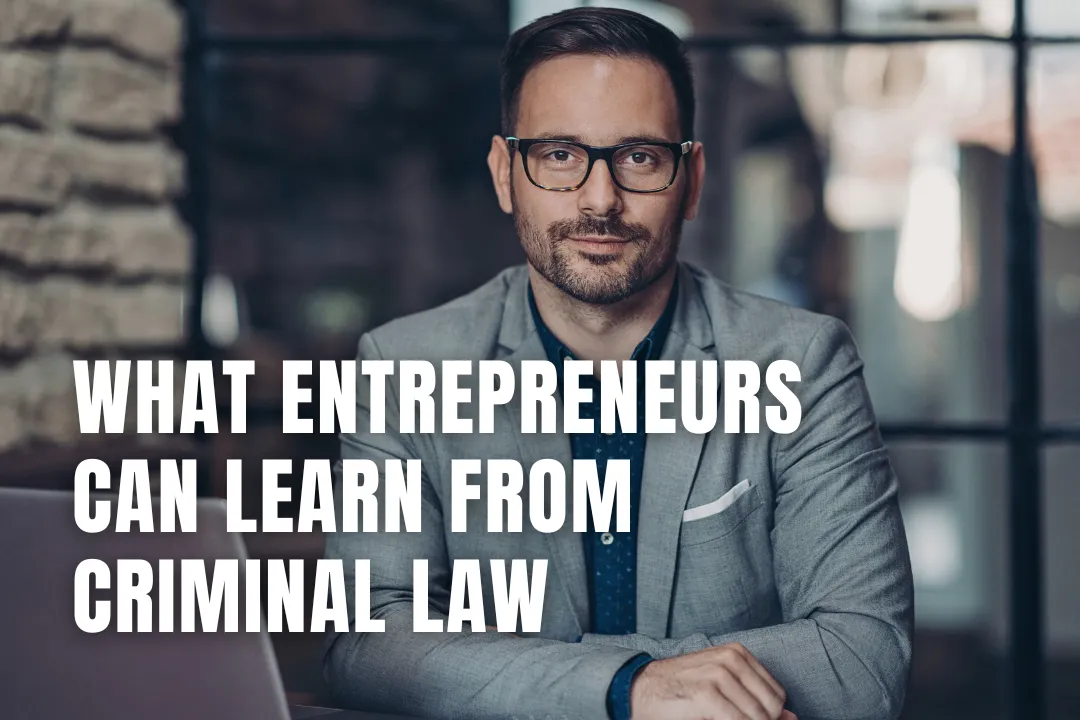
Editorial Disclaimer
This content is published for general information and editorial purposes only. It does not constitute financial, investment, or legal advice, nor should it be relied upon as such. Any mention of companies, platforms, or services does not imply endorsement or recommendation. We are not affiliated with, nor do we accept responsibility for, any third-party entities referenced. Financial markets and company circumstances can change rapidly. Readers should perform their own independent research and seek professional advice before making any financial or investment decisions.
Running a business isn’t for the faint of heart. You're making snap calls, juggling people and projects, defending your ideas, and trying to stay ahead of the next curveball. Sound familiar? Now picture doing all that, but in a courtroom, with someone’s freedom on the line.
That’s the kind of pressure top criminal defence lawyers live with every day. And oddly enough, the mental discipline they bring to the courtroom has a lot in common with what great entrepreneurs need in the boardroom, pitch meeting, or investor call.
Firms like Gallant Law deal with high-stakes cases where there’s no room for error. Their ability to perform under that kind of heat offers some surprisingly practical lessons for business leaders who want to lead smarter, not just louder.

Defence lawyers don’t get to “circle back” next week. Court dates are fixed. Judges don’t care about your busy calendar. When the pressure’s on, they don’t freeze, they focus.
That’s a skill every founder needs: clear, decisive thinking on a deadline.
When you’re running a business, it’s easy to drown in distractions. But in high-stakes moments, launches, crises, and lawsuits, clarity beats chaos every time. Ask yourself:
Criminal defence is about stripping the drama out and zeroing in on facts. That mindset keeps founders from overreacting or stalling out. Get clear, then get moving.
You’ll never see a great lawyer show up to court without notes, documents, timelines, and everything they might need to argue the case from every angle. That confidence? It’s not charisma. It’s preparation.
Entrepreneurs often lean on instinct, especially when time’s tight. But if you want to lead with confidence, you’ve got to know your stuff, your numbers, your market, your risks. When you’ve done the work, pressure doesn’t rattle you.
Here’s one trick: challenge your plan like a prosecutor would. Ask the awkward questions, find the soft spots, and build your backup strategy. That’s not just caution, it’s control.
In court, emotion can wreck a defence. Lawyers who let frustration or ego take the wheel usually lose. The best ones stay focused on the finish line, winning the case, protecting the client, and controlling the outcome.
That same shift in mindset works in business.
Fired up about a client acting out? Frustrated by a competitor bad-mouthing your product? Don’t just react. Step back and ask: what result am I going for?
Maybe it's a clean client exit, maybe it’s legal action, or maybe it’s a reframe in your messaging. But whatever the situation, letting emotions steer the ship rarely works out. Focus on the result, not the heat of the moment.
Good defence lawyers live at the edge of what’s legal, but the best ones know where to draw the line. They don’t just ask, “Can I do this?” They ask, “Should I?”
That’s a question entrepreneurs should ask more often.
It’s easy to get tempted, pad the pitch deck, cut corners on compliance, and fudge the results. But short-term wins built on shaky ethics always crack. The founders who earn trust (and keep it) think long-term. They build companies that don’t just survive audits and crises; they come out stronger.
Firms like Gallant Law are known for fighting hard without selling out. That balance is powerful. In business, doing the right thing, especially when it’s inconvenient, is how you build something worth keeping.
If you’ve ever watched a lawyer field a hostile cross-examination or a media circus, you know they’re not just sharp thinkers, they’re cool under fire.
Staying calm under pressure isn’t a mystery. It’s a skill. And entrepreneurs can build it, too.
Being cool doesn’t mean being cold; it means staying sharp when others spiral. That’s leadership.
Great defence attorneys aren’t just good talkers; they’re elite listeners. They’re tuned in, picking up on inconsistencies, tone shifts, even silence. They listen to understand, not to reply.
That’s a superpower in business, too.
Whether you’re talking to a stressed-out team member, a tough investor, or an upset customer, listening first gets you better results. Try this line:
“Can you walk me through that a bit more?”
It slows things down, shows respect, and gives you the info you need to respond with impact.
Ego gets people into trouble in court and business. A lawyer who won’t consider a plea deal just to protect their pride can ruin a case. The same goes for a founder who refuses to pivot when the market says otherwise.
The best leaders know when to hold firm and when to adjust. Strategy isn’t about looking tough, it’s about doing what works.
So, the next time you feel stuck on a decision, ask yourself:
Am I doing this to prove something? Or to solve something?
One helps your business grow. The other might just stall it out.
Things will go sideways at some point. A product fails. Data leaks. Someone on the team screws up. How you respond matters more than the crisis itself.
Here’s a playbook straight from legal:
In business, as in law, leadership isn’t about dodging fire; it’s about showing up and handling it.
At its core, defence work is about standing up for people. It’s not flashy. It’s not always popular. But it’s powerful.
That kind of leadership, steady, honest, quietly fierce, is what sticks.
You don’t need to be the loudest person in the room. You don’t need to throw around buzzwords or fake bravado. The leaders who build lasting businesses are the ones who serve, protect, and show up with integrity, even when it’s hard.

You’re not cross-examining witnesses in front of a jury. But you are making decisions every day that affect real people, your team, your customers, and your investors.
There’s a lot you can take from the way great defence lawyers work. Clarity. Prep. Ethics. Listening. Strategy. Poise under pressure.
If they can keep their cool when freedom is on the line, you can lead well when the pressure’s on.